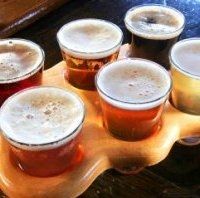A new beer tasting language

As a result of my article on tasting and anosmia Take one nose at the weekend I have had quite a bit of correspondence.
Several tasters and wine lovers, some quite well known, confess to having suffered similarly, and I also received the following interesting email from Jens Eiken of Denmark:
On my way back from Slow Food in Turin, I read your article in the FT about how to taste wines as well as your column about sake. Great!
I also hope it is time to discuss the flavour of beer? In Denmark we have launched a new ‘beer language’. Please see here.
At the same time we have launched an exhibition about the five senses in beer. I hope this is of interest to you and your readers. In Denmark we have now the world record in number of microbrewers per capita and needed a better beer-language; a positive one...
I am the head brewer of the Jacobsen Brewhouse (www.jacobsenbeer.com) – the smallest brewery in the Carlsberg group. I am myself on my way to work for Coors Brewers Ltd in Burton-on-Trent, UK.
But perhaps even more interesting for wine lovers and those interested in the mechanics of tasting is this super-polite and important correction from the drinks editor of Gourmet magazine in New York, James Rodewald:
Your excellent (as always) piece in the Financial Times on the 24th
contained a slight mistake. You write, "Until the last few years, it was
widely believed that the tongue was particularly sensitive to the four basic
tastes in discrete areas." In fact, the so-called "tongue map" was
discredited in 1974 and shown to be a century-old misunderstanding. (Of
course, it still shows up occasionally in Riedel literature.) I've attached
a PDF of the [2004, below] article we did on the science (and lack thereof) of wine
glasses. The conclusion is that they do matter, just not for the reasons
that glass-sellers say.
Become a member to view this article and thousands more!
- 15,428 featured articles
- 273,974 wine reviews
- Maps from The World Atlas of Wine, 8th edition (RRP £50)
- The Oxford Companion to Wine, 5th edition (RRP £50)
- Members’ forum
- 15,428 featured articles
- 273,974 wine reviews
- Maps from The World Atlas of Wine, 8th edition (RRP £50)
- The Oxford Companion to Wine, 5th edition (RRP £50)
- Members’ forum
- Commercial use of our Tasting Notes
